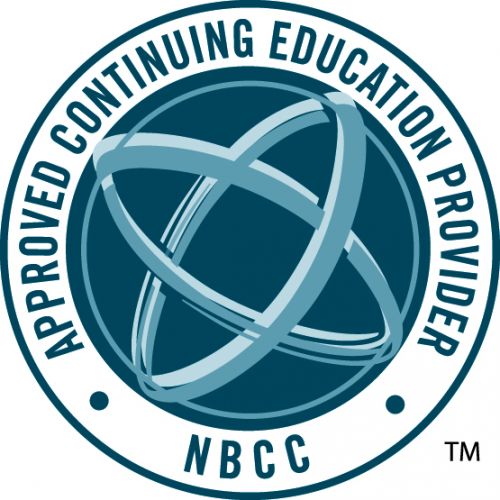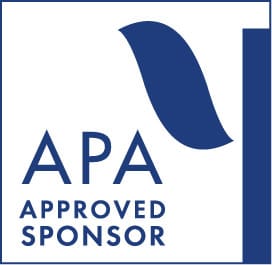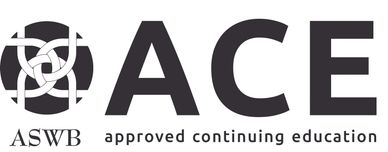- ADHD
- Adults
- Alternative Medicine
- Alzheimers & Aging
- Animal-Assisted Therapy
- Autism
- Behavior Therapy
- Child & Adolescent
- Closeout
- Communication
- Couples-Family-Parenting
- Cultural Diversity
- Depression & Anxiety
- Domestic Violence
- Ethics & Risk Management
- Gender Identity
- HIV-AIDS
- Human Trafficking
- Laws & Rules
- Medical Errors
- Mindfulness & Yoga
- Miscellaneous
- National Psychologist
- Nutrition & Fitness
- Pain Management
- Psychotherapy
- Sexuality
- Substance Abuse
- Suicide
- Supervision
- Trauma & PTSD
The Use of Humor in Therapy
Louis R. Franzini, PhD
$29.00 Original price was: $29.00.$14.50Current price is: $14.50.
 Intermediate
Intermediate
 Online
Online
Course Abstract
The Use of Humor in Therapy is a 2-hour online continuing education (CE) course that reviews the risks and benefits of using humor in therapy and the relevant historical controversies of this proposal.
Should therapists and counselors use humor as a therapeutic technique? If so, should they be formally trained in those procedures before their implementation? The paucity of rigorous empirical research on the effectiveness of this form of clinical intervention is exceeded only by the absence of any training for those practitioners interested in applying humor techniques. In this course a representative sample of its many advocates’ recommendations to incorporate humor in the practice of psychological therapies is reviewed.
Therapeutic humor is defined, the role of therapists’ personal qualities is discussed, and possible reasons for the profession’s past resistance to promoting humor in therapy are described. Research perspectives for the evaluation of humor training are presented with illustrative examples of important empirical questions still needing to be answered.
Closeout Course #21-02 | 2015 | 24 pages | 14 posttest questions
Learning Objectives
- Define therapeutic humor
- List at least 7 specific benefits of using humor in therapy
- List at least 5 specific risks of using humor in therapy
- Identify at least 3 pressing research needs regarding humor in therapy
- Name at least 4 scientific problematic issues with much of the past and current research on humor in therapy
- Name at least 3 major training issues regarding humor in therapy
Course Directions
This online course provides instant access to the course materials (PDF download) and CE test. The course is text-based (reading) and the CE test is open-book (you can print the test to mark your answers on it while reading the course document).
Successful completion of this course involves passing an online test (80% required, 3 chances to take) and we ask that you also complete a brief course evaluation.
About the Author(s)
Louis R. Franzini, PhD : Find out More
Louis R. Franzini, PhD, received his B.S. degree in Psychology from the University of Pittsburgh, his M.A. degree in Clinical Psychology at the University of Toledo, and his Ph.D. in Clinical Psychology from the University of Pittsburgh. He then completed a Postdoctoral Fellowship in Behavior Modification at the State University of New York at Stony Brook (now Stony Brook University). Following the postdoctoral program Dr. Franzini joined the Psychology Department at San Diego State University, where he spent his entire academic career. He retired as Emeritus Professor of Psychology. His international academic experience included appointments as Distinguished Professor of Psychology at the Universite Catholique de Louvain, Louvain-le-Neuve, Belgium and Senior Fellow in the School of Accountancy and Business, Human Resource and Quality Management Division at Nanyang Technological University, Singapore. Dr. Franzini is licensed as a psychologist in Florida and in California.
Financial: Dr. Franzini receives royalties on his books from John Wiley & Sons, Rowman and Littlefield, Square One Publishers, Sage Publications and from Professional Development Resources on sales of his courses.
Nonfinancial: No relevant nonfinancial relationship exists.
CE Information
Counseling

Professional Development Resources (PDR) has been approved by the National Board for Certified Counselors (NBCC) as an Approved Continuing Education Provider, ACEP No. 5590. Programs that do not qualify for NBCC credit are clearly identified. PDR is solely responsible for all aspects of the programs.
Professional Development Resources is CE Broker compliant (#50-1635 - all courses are reported within two business days of completion). Professional Development Resources, Inc. is recognized by the New York State Education Department’s State Board for Mental Health Practitioners as an approved provider of continuing education for licensed mental health counselors (#MHC-0135 - Note: New York counselors will receive 2 continuing education credits for completing this self-study course).
Marriage and Family Therapy

Professional Development Resources is approved by the American Psychological Association (APA) to sponsor continuing education for psychologists. Professional Development Resources maintains responsibility for this program and its content. Professional Development Resources is also approved by the National Board of Certified Counselors (NBCC ACEP #5590); the Association of Social Work Boards (ASWB #1046, ACE Program); the New York State Education Department's State Board for Mental Health Practitioners as an approved provider of continuing education for licensed marriage and family therapists (#MFT-0100 - Note: New York MFTs will receive 2 continuing education credit(s) for completing this self-study course); the Texas Board of Examiners of Marriage and Family Therapists (#114); and is CE Broker compliant (#50-1635 - all courses are reported within two business days of completion).
Occupational Therapy

Professional Development Resources is an AOTA Approved Provider of professional development. Course provider ID# 3159. This distance learning-independent course is offered at 0.2 CEUs, intermediate level, OT Service Delivery]. The assignment of AOTA CEUs does not imply endorsement of specific course content, products, or clinical procedures by AOTA.
Professional Development Resources is CE Broker compliant (#50-1635 - all courses are reported within two business days of completion).
Psychology

Professional Development Resources is approved by the American Psychological Association (APA) to sponsor continuing education for psychologists. Professional Development Resources maintains responsibility for this program and its content.
Professional Development Resources is CE Broker compliant (#50-1635 - all courses are reported within two business days of completion). Professional Development Resources, Inc. is recognized by the New York State Education Department’s State Board for Psychology as an approved provider of continuing education for licensed psychologists (#PSY-0145).
School Psychology

Professional Development Resources is approved by the American Psychological Association (APA) to sponsor continuing education for psychologists. Professional Development Resources maintains responsibility for this program and its content.
Professional Development Resources is CE Broker compliant (#50-1635 - all courses are reported within two business days of completion). Professional Development Resources, Inc. is recognized by the New York State Education Department’s State Board for Psychology as an approved provider of continuing education for licensed psychologists (#PSY-0145).
Social Work

Professional Development Resources, #1046, is approved as an ACE provider to offer social work continuing education by the Association of Social Work Boards (ASWB) Approved Continuing Education (ACE) program. Regulatory boards are the final authority on courses accepted for continuing education credit. ACE provider approval period: 6/12/2022 - 6/12/2025. Social workers completing this course receive 2 clinical continuing education credits.
Professional Development Resources is CE Broker compliant (#50-1635 - all courses are reported within two business days of completion). Professional Development Resources, Inc. is recognized by the New York State Education Department's State Board for Social Work as an approved provider of continuing education for licensed social workers (#SW-0664 - Note: New York social workers will receive 2 continuing education credit(s) for completing this self-study course). Professional Development Resources is also approved by the Texas State Board of Social Worker Examiners (#5678).
Customer Testimonials
Great course. I would love to see a course on humor in therapy consisting of a number of vignettes. I think it is hard to teach humor, but if one could understand the purposeful and accidental use of it in a practical sense, maybe it could be learned to a certain extent. Steven Sultanoff does a great class on the topic.
I've always been interested in the area of humor in counseling/therapy, and it was helpful to review some of the history, background. etc. Perhaps I won't produce as many embarrassing "clunkers" as a result of this course.
The two Appendices are great in The Use of Humor in Therapy. They give a really nice summary of the existing literature on benefits and risks of using humor.
This course gave me a better understanding into a slightly different approach to therapy.
Very well written, interesting, and informative.
More Testimonials
Thanks for the serious treatment of how to be humorous and lighthearted in our work!
Interesting! Quite enjoyed and appreciated the Modest Proposal approach. Thanks!
Lots of great research, presented in a way that thoughtfully illuminated the benefits and risks of incorporating humor into therapy.
I liked this because I promote the use of humor in treatment and employ it regularly so I was glad to see some background on its study.
Good course. I enjoyed it.
This course was helpful. Thank you.
What a brilliant course; clear, refreshingly upbeat, and very informative. Thank you!
Good course!
Great course!
Good course!
Wish the course had more humor in it.
Book on humor by one of the funniest guys I know. He could always make me laugh...as a professor and a friend.
Fun class!
For the most part, very readable with insight into using humor in counseling.
Thought the course was excellent with highly useful content and resources!
Great course. Would be great is all students and practitioners applied humor in their work! Thanks.
Interesting and relevant to my work.
Very interesting topic.
Very good overview.
I have worked as a psychologist for a number of years and have consistently found the therapeutic value of humor, but agree that it needs to be within the context of an empathetic, caring, and genuine relationship; as well as shared by both parties. One suggestion would be the inclusion of an open ended question to see how the student would use humor in a given dilemma.
Excellent course! Looking forward to more research being done in the area of the beneficial role humor can play in psychotherapy.
Very funny and informative course. I laughed all the way through!
Good course & topic. You should try to keep it on your roster
Therapy isn't anything to laugh at ... oh wait, yes it is!!!!
Helpful to normalize an aspect of therapy for more experienced therapists.
Interesting introduction to a brand new topic for me. Really useful going forward.
This course was interesting and informative.
Fascinating class!
Very insightful and relevant.
As a member of AATH who is also a licensed psychologist, I thoroughly enjoyed this course. Most of the time, I don't read the Appendixes, but these were definitely helpful. My favorite was "Napier and Whitaker, 1978. To keep the therapists sane!" I would definitely recommend this course to colleagues.
Great information at great prices!!! Love the use of humor in therapy!!!
The course was very interesting and made me more aware of using humor as a therapy tool. It was well organized and informative.
This course was an excellent course for me to take because I have encountered several clients that wanted me to use humor in our therapy.I think that humor in some therapy is good, but of course some are not.Thank you so very much for all the courses that you offer I enjoy them so much and really learn a lot when I use these courses for my CEU's.
I have always used humor to some extent in my therapy. I was glad to have some guidelines and make sure I was using and will be using it correctly.
Very enjoyable and interesting course.
A great course- so reinforcing of my style I feel so enthusiastic!
Interesting material, balanced perspective with the use of a variety of resources.
I never learned in graduate school, the use of humor in therapy. What a great feeling to be validated because my clients and I feel the right use of humor can be therapeutic.
I loved this course and remembered all the many cherished moments working with clients where humor helped with rapport in a priceless way. Can't put a price on that! Appendix A and B are wonderful compilations! Thank you!
Good overview of this subject and the problems associated with trying to research it more.
Thank you! Excellent information, and the graphics made me smile.
Really enjoyed the content and material of this course. Look forward to using this in my practice.
Very well-written course with a lot of great humor interspersed within an interesting topic!
Nicely done! Interesting perspective on an interesting topic that was refreshing 'out of the box'.
Very clearly written and easy to follow.
A good way to earn CE credits. Questions help me focus on important ideas. Thanks.
Great course--and that is no kidding!
Though therapeutic in nature, this is a topic often overlooked and I deeply appreciated the study work and growth perspective and confirmation of the use of humor in my professional and personal life, for the purpose of navigating challenging places on the way to a healing path.
I learned a lot of information that I did not know before.
Very educational, great course!
Very good presentation with well cited references and useful appendices.
Enjoyed this course. Lots of "food for thought". Found it validating, as I have used humor in therapy for at least the past 30 of 42 years practice and can identify with the pitfalls and successes described.
Good course. It gave me some insight on my own use of humor in building rapport and connecting with clients.
Very good presentation with well cited references and useful appendices.
I really enjoyed this course. I am a really caring person, but realized that I want to try to add more humor into my life and as a therapist. This course gave some great practical ways to incorporate more humor. Really enjoyed the practical ideas and tools mentioned.
I learned that humor could be an effective tool in therapy, and that the therapist must be vigilant and assess how the use of humor can be used to meet a therapeutic goal. Thanks.
Thanks. I appreciate the AATH reference. Joining soon.
I believe humor has a place in therapy. And yet, this was a great training. The point is training in humor awareness is always valuable, as well as a keen in the moment awareness of the pro's and con's, risk and benefits of humor for each client. I like to voice in advance a comment to stage my humor. Example, "On a funnier note..... On the lighter side.... " It removes some of the spontaneous aspect, but is a small safe guard to care for them, should there be a feeling of a therapist insensitivity experienced.
I think this course is especially useful for practitioners who see clients who tend to incorporate humor into their sessions as a healthy coping mechanism. It challenges the idea that there is no room for humor in therapy. And helps therapists understand the essential underpinnings of healthy clinically-incorporated humor.



